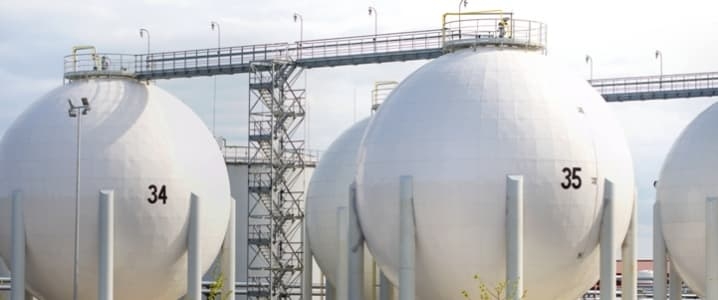If fuels were actors, LNG would be the rising star. Everyone wants LNG: it’s cheaper and cleaner than oil, and it is abundant enough to remain attractive in the long run as well. But some LNG fans may have outdone themselves.
Reuters’ Sabina Zawadski and Oleg Vucmanovic write in a recent report that Japanese utilities are looking for merger and acquisition opportunities to secure alternate markets for the LNG supplies they have contracted with U.S. producers, as domestic demand is set to slide and may not be strong enough to soak up all that they have been contracted to purchase.
For energy-hungry Japan and South Korea, the rise of U.S. LNG was a true boon. It offered them an alternative to costlier, oil-tied Qatari LNG supplies, so traders such as JERA, Kogas, and Tokyo Gas rushed to secure long-term, flexible delivery contracts with LNG producers that needed cash to build their LNG plants.
It was a win-win situation: the producers got the investments they needed to make LNG capacity available, and traders got a long-term supply commitment under better terms than Middle Eastern LNG. Now it seems that they may not need all these supplies—supplies that they are locked into purchasing.
The International Energy Agency has forecast that Japan’s demand for gas for power generation could slump by as much as 17 percent by 2023 on the back of returning nuclear power generation capacity and growth in renewable energy. South Korea also has an ambitious renewables program. So gas traders are looking to Europe for markets. Related: Trump Is Fracturing OPEC
Earlier this month, JERA and France’s EDF announced they will merge their LNG trading units, which will provide JERA with greater access to the European LNG market, which has become the swing market in this energy industry segment. Europe consumes 550 billion cubic meters of natural gas annually and is always open to a more diverse set of supply sources.
Last month, Tokyo Gas and Centrica inked a deal for the joint purchase of LNG from Anadarko’s East African LNG project in Mozambique, yet to be built. Anadarko’s lenders for the project have asked for long-term supply commitments for at least 8.1 million tons of the project’s 12.88-million-ton annual capacity, and Tokyo Gas and Centrica committed to buy 2.6 million tons of LNG from the U.S. producer. The total commitments have so far come in at 7.7 million tons. And what if Anadarko can’t find commitments for 8.1 million tons annually? Its Mozambique project will be scrapped, and buyers will find another supplier.
With so much LNG capacity coming on stream in Australia, the United States, and Russia as well, buyers will have the pleasure of being able to pick the cheapest and most flexible options out there, which means the LNG market will only become more competitive in the coming years. Some suppliers could fall over board if they can’t offer low enough prices and flexible delivery mechanisms.
These flexible mechanisms—and price independence from oil—were what set U.S. producers apart from traditional suppliers that peg their LNG to oil prices to the detriment of buyers and insist on a fixed delivery routes. U.S. producers won the Asian market because they were fine with deliveries being diverted. Chances are, more producers will follow their example to maintain or expand market share. And they will have to hope that Europe does not decide to double down on renewables and increase the pace of their expansion, shrinking the LNG market.
By Irina Slav for Oilprice.com
More Top Reads From Oilprice.com:
- Trump Is Fracturing OPEC
- The New Oil Cartel Threatening OPEC
- The Energy Companies Fighting For EV Charging Dominance


















